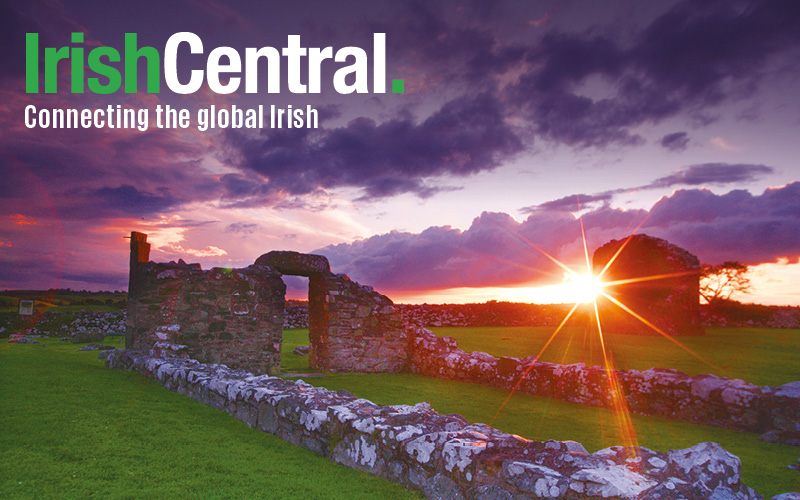Imagine alien economists landing from another planet to assess the state of the Irish economy. (Don’t laugh, for many Irish that is what the last few years have felt like, as troika economists – highly respected and capable but with very different frames of reference to most Irish people – have visited our shores). What would those alien economists say?
The first thing they’d have difficulty understanding is why an island nation of 6.5 million people on the edge of Europe has been split into two separate tax, currency and legal systems.
Read More: Is Ireland sinking again? 87,000 emigrate and unemployment still 14.6 percent
The second thing they’d have difficulty understanding is why one part of the island is – devolution aside – effectively governed from a city in the south of a neighbouring island whose voters don’t even share the same political party.
The third thing they’d have difficulty understanding is why after conflicts all over the world have been settled, Ireland remains the only developed country outside Korea to be divided.
Instead of two separate economies, one with 4.6 million (the Republic) and the other with 1.9 million (Northern Ireland) they would recommend that this island merge into a single island entity of 6.5 million – and growing – persons.
Economies of Scale is one obvious reason; bigger markets mean more effective indigenous industries and greater pull in Foreign Investment. Transactions costs and efficiencies are another: Operating two systems on one small island makes no sense at all. Leveraging the souths’ access to the Euro zone with the North’s access to Britain is a further reason why this merger would be recommended. Finally the north has an economy too dominated by the public sector, but its public sector is cost effective and well run.
Read More: Latest fascinating facts and figures on Irish America revealed in Census data
Although smaller relative to the economy, the south’s public sector is cost ineffective but its industrial and business sector is vibrant. In short, the north and south of Ireland complement each other wonderfully.
As for religion, let each tradition fly its own flag. In a pluralist world, a United Ireland won’t be imposing any religious views on its citizens. Ironically after pointing the finger at the south for being too catholic, the British constitution prevailing in the North is now a far greater candidate for finger pointing in this regard.
Northern Ireland is a legal jurisdiction whose existence is now, thanks to the Good Friday Agreement respected by the governments in Dublin and Westminster. But Northern Irish national identity is an artificial construct that in the long run is doomed.
Like the idea of a national identity for Yorkshire or Cumbria, the idea that one moves from one nationality when moving from Dundalk (in the south) to Newry (a few mile away in the North) is nonsense. Statisticians who try to group those in the North into neat categories of British, Irish or Northern Irish miss the point: The majority of people in the North regard themselves as some sort of Irish.
And those who regard themselves as Northern Irish have far more in common with their neighbours a few miles away in the south than they do with anyone in Yorkshire, London or Cardiff. None of the parties in Wales or England – the Tories, Labour or Liberals – have any representation in Northern Ireland. Nor any real interest or connection with it.
Boost for a united Ireland support in new poll figures from Irish Times
For Westminster, Northern Ireland is a backwater to be funded by subvention, tolerated with sighs and sometimes a convenient place for Prime Ministers to exile their political enemies in cabinet. And that is why in the long run, Irish unity – a unity based on a joint parliament in Belfast and a strong role for Protestants holding the balance of power and with strong safeguards for those of British identity – makes sense: We in the south want a United Ireland while the English have no interest in the place.
They don’t realise it, but the southern Irish like their protestant fellow Irishmen and want them on board. The English merely tolerate them. The alternative to reunification is to keep nearly 60 per cent of the North’s population who regard themselves as Irish or Northern Irish in a British statelet that was designed along sectarian lines, ie to lock in a protestant majority.
A statelet that moreover belongs to an entity that treats catholics as second class citizens. And here is another reason for unification: In the south we have had two protestant Heads of State. In Britain, the Head of state must be Protestant. This is offensive and grotesquely out of date. Despite accusations of being “priest-ridden” the south is far more progressive and pluralist than the north.
As recent census data shows, the British constitution – based on Protestant supremacy – will soon be out of kilter with a Northern Ireland in which Catholics will soon be equal in number to Protestants and a decade or so after that become a majority. A majority of under 30 year old are already catholic. And here is the danger:
Read More: Sordid tale of Boston College IRA tapes should now be over - Death of Dolours Price means no prosecution possible for British
The danger that in the absence of a positive vision for reunification, and given the legacy of violence and sectarianism, reunification may be seen as a “victory” for one side over the other in a sectarian head count. If anything, victory must be a victory of Protestants: Their emergence from a neglected dysfunctional statelet that is merely an afterthought for Westminster politicians into a united vibrant new Ireland which they will shape as they have before.
Irish nationalism and culture is unthinkable without the great contribution of Irish Protestants. From Grattan to Wolfe Tone to Parnell, protestants created our national drive for independents. Douglas Hyde revived the Irish language. From Swift to Yeats to Beckett, Irish protestants have spread our culture around the world.
It is now time for them to complete their mission and re-unify Ireland. Not using the dead language of sectarian conflict. But a new vibrant and pluralist one built on a growing population, economies of scale, the advantage of links with Britain and the Euro zone and a reformed mindset political institutions.
In 1904 when contemplating the state of Israel Zionist leader Theodor Herzl said “If you will it, it is no dream”. If the dream of Irish unity is cleansed on sectarianism and head count logic – and willed forward by the huge realisable economic gains – it will be no dream, but a reality by the middle of this century.
*Marc Coleman is a broadcaster, journalist and author and these are his personal views www.marccoleman.ie




Comments